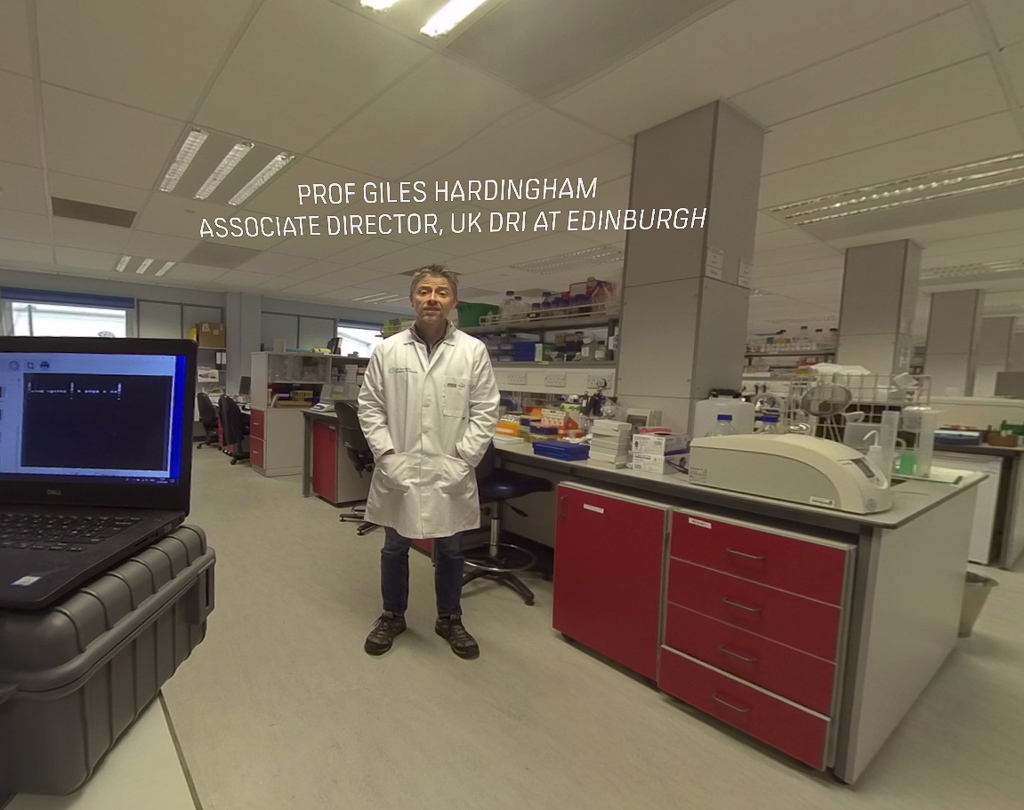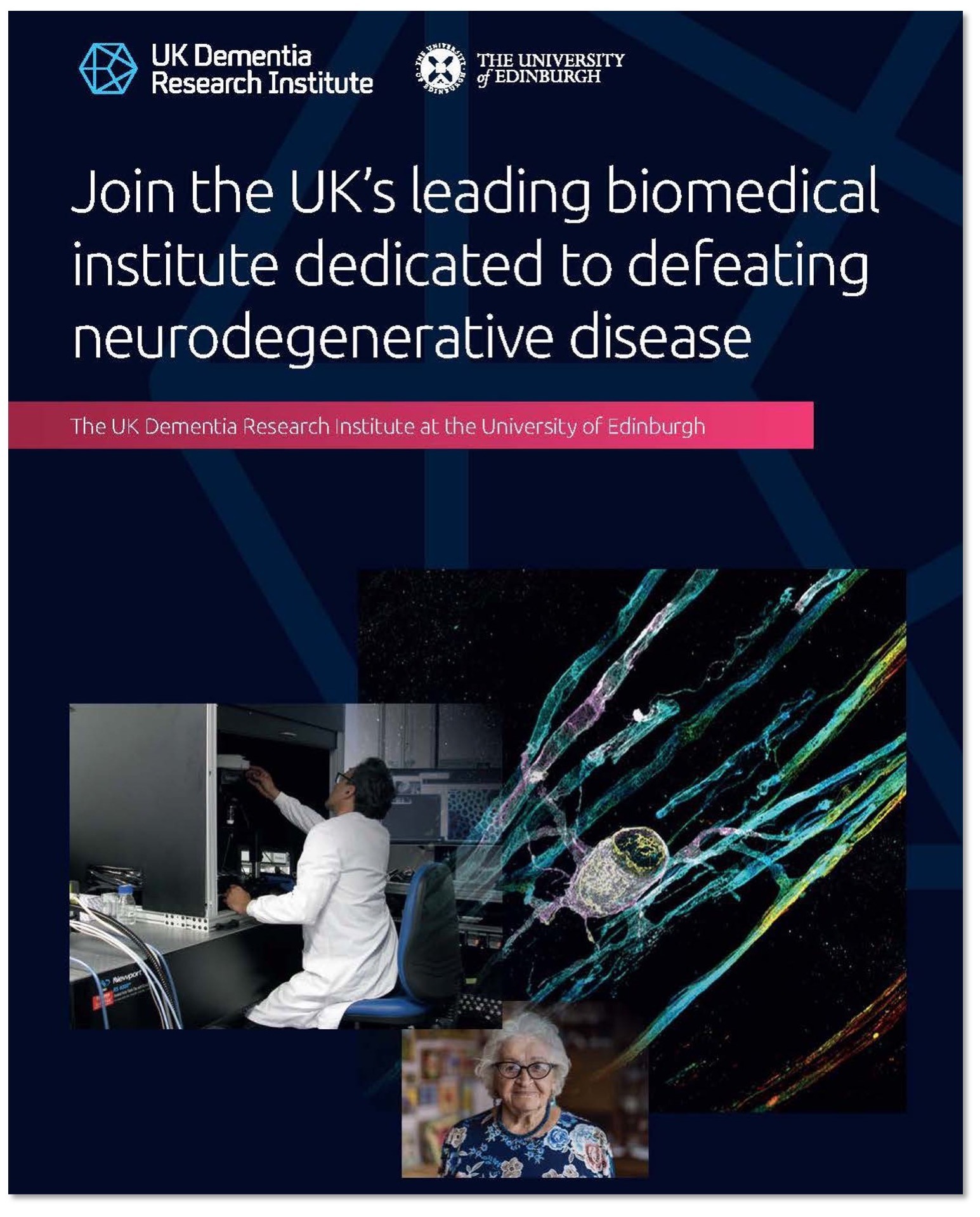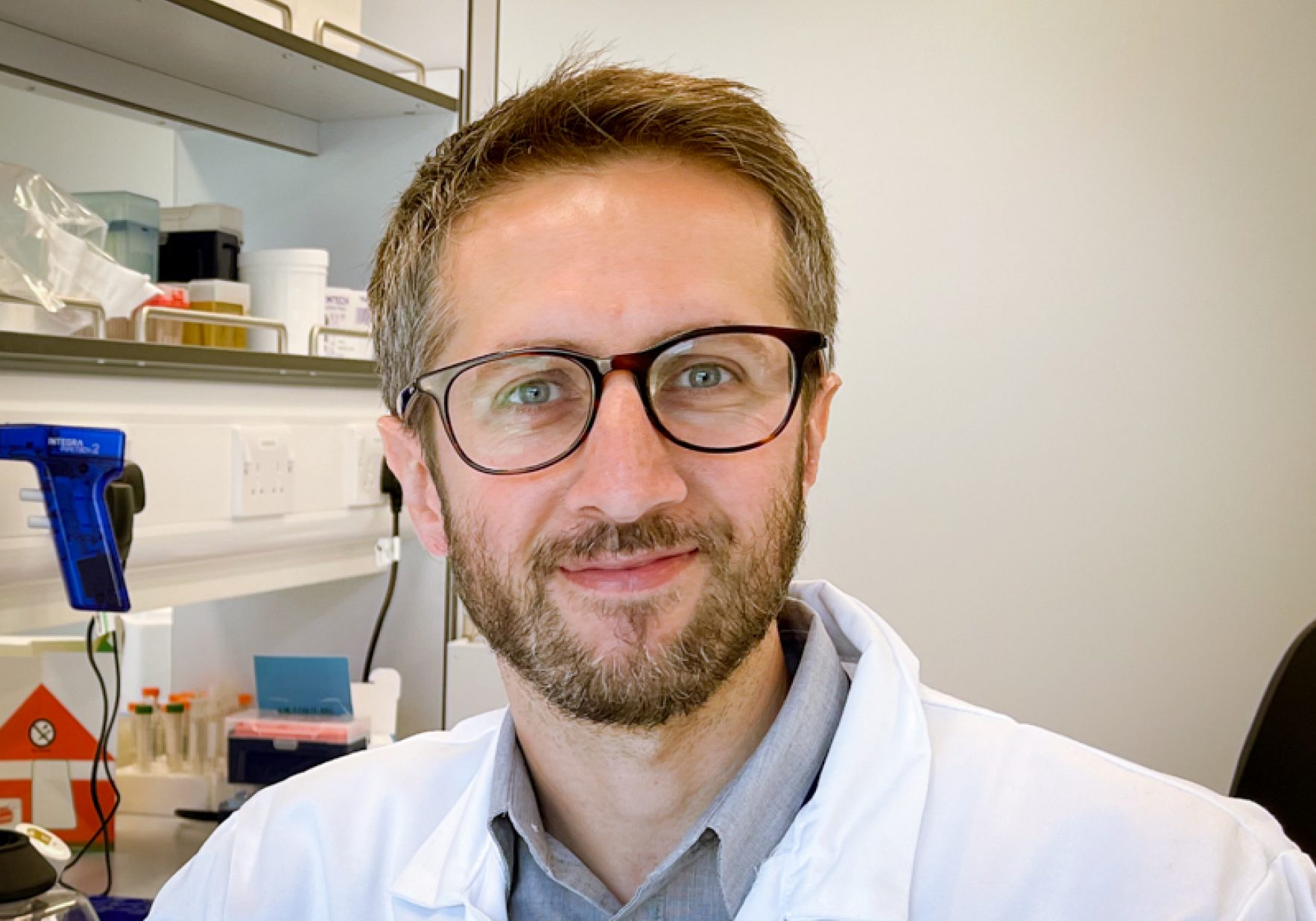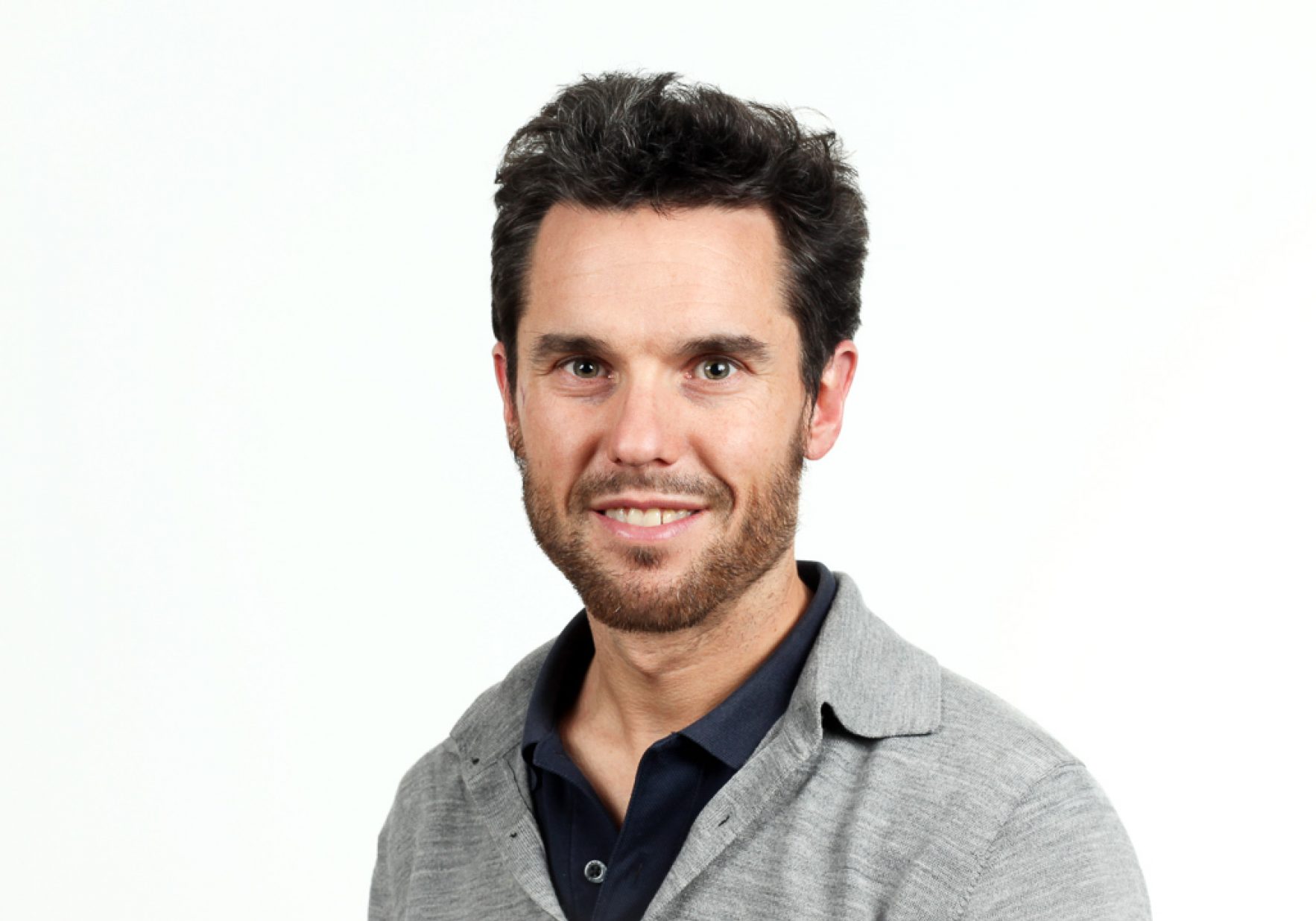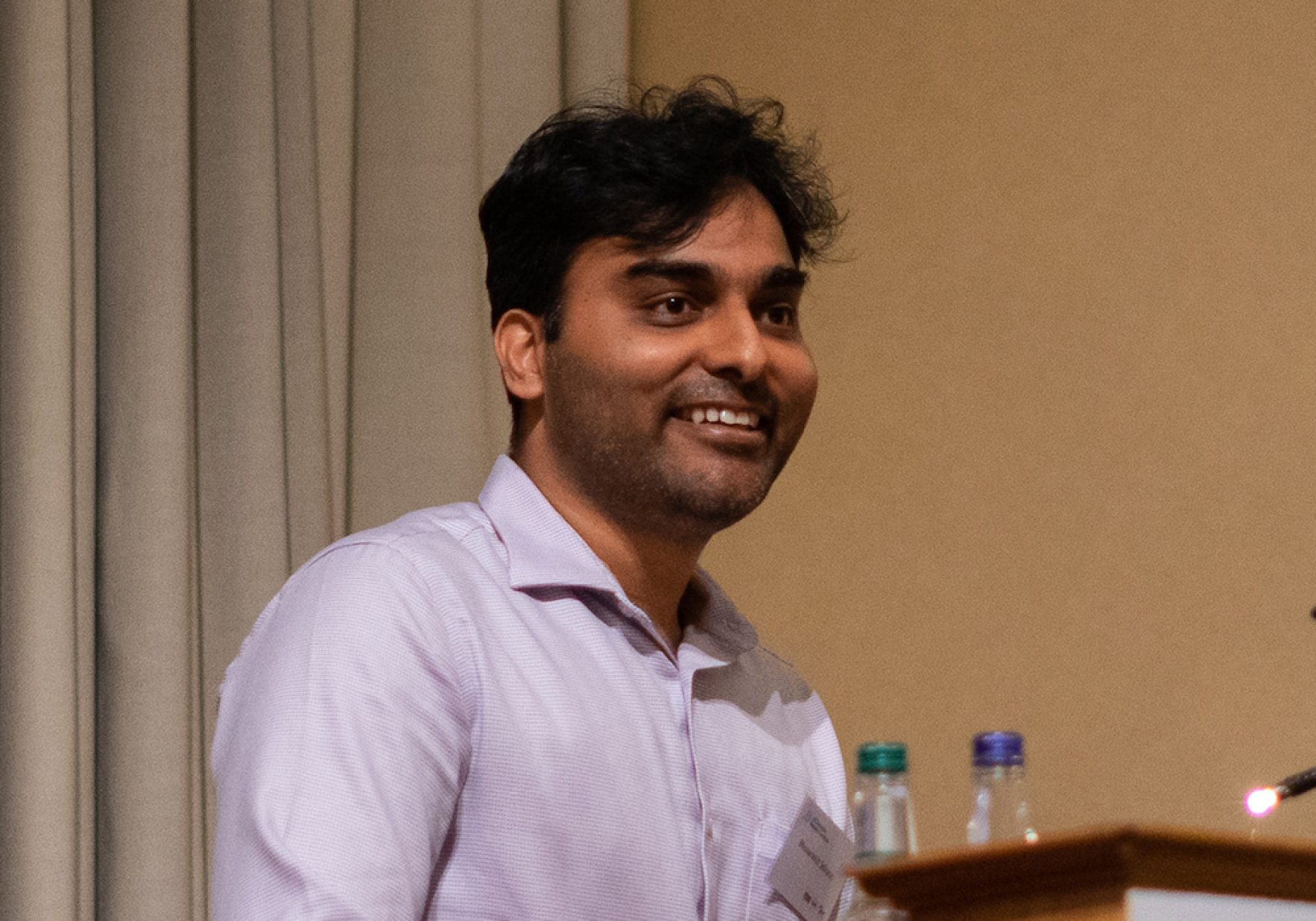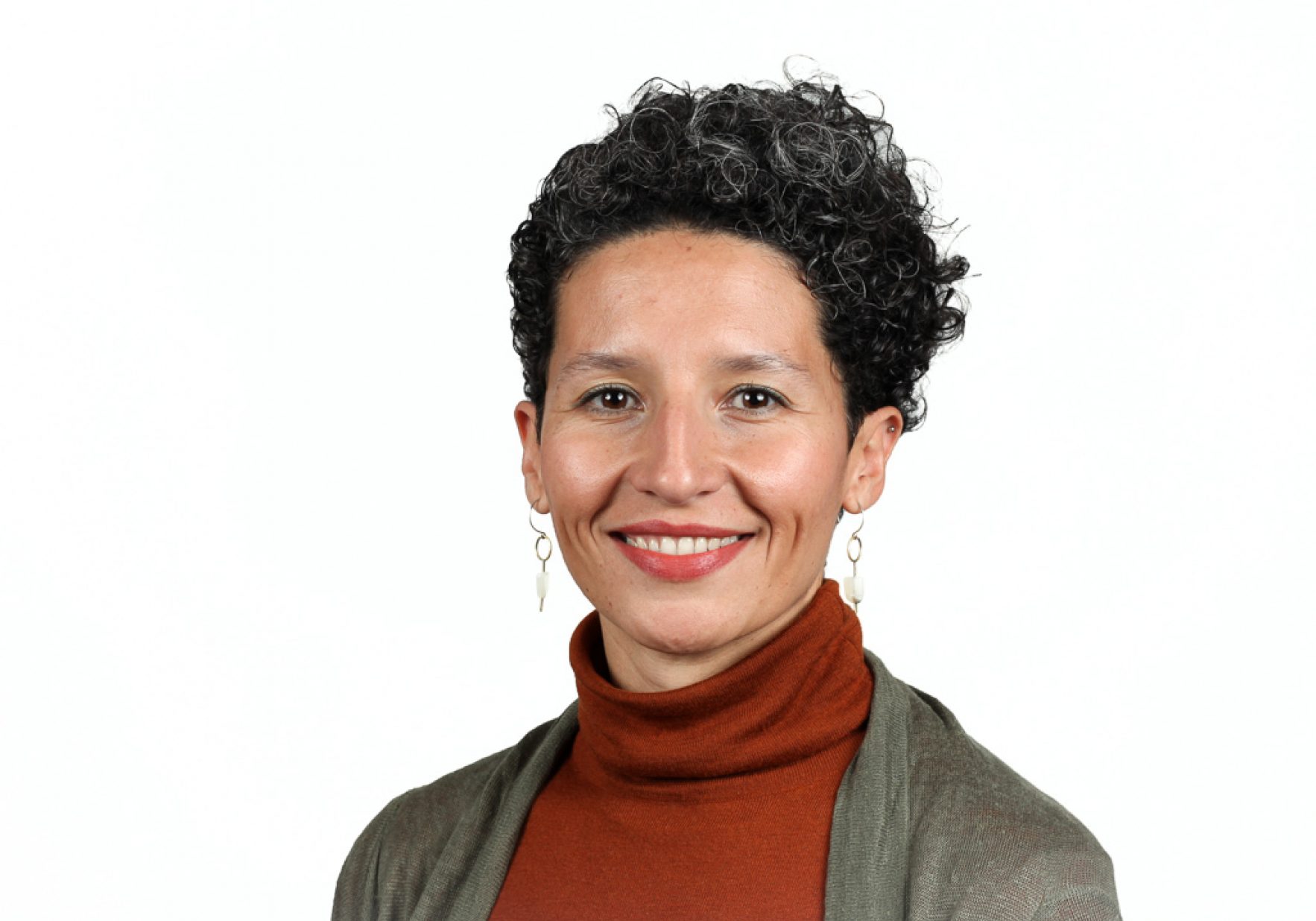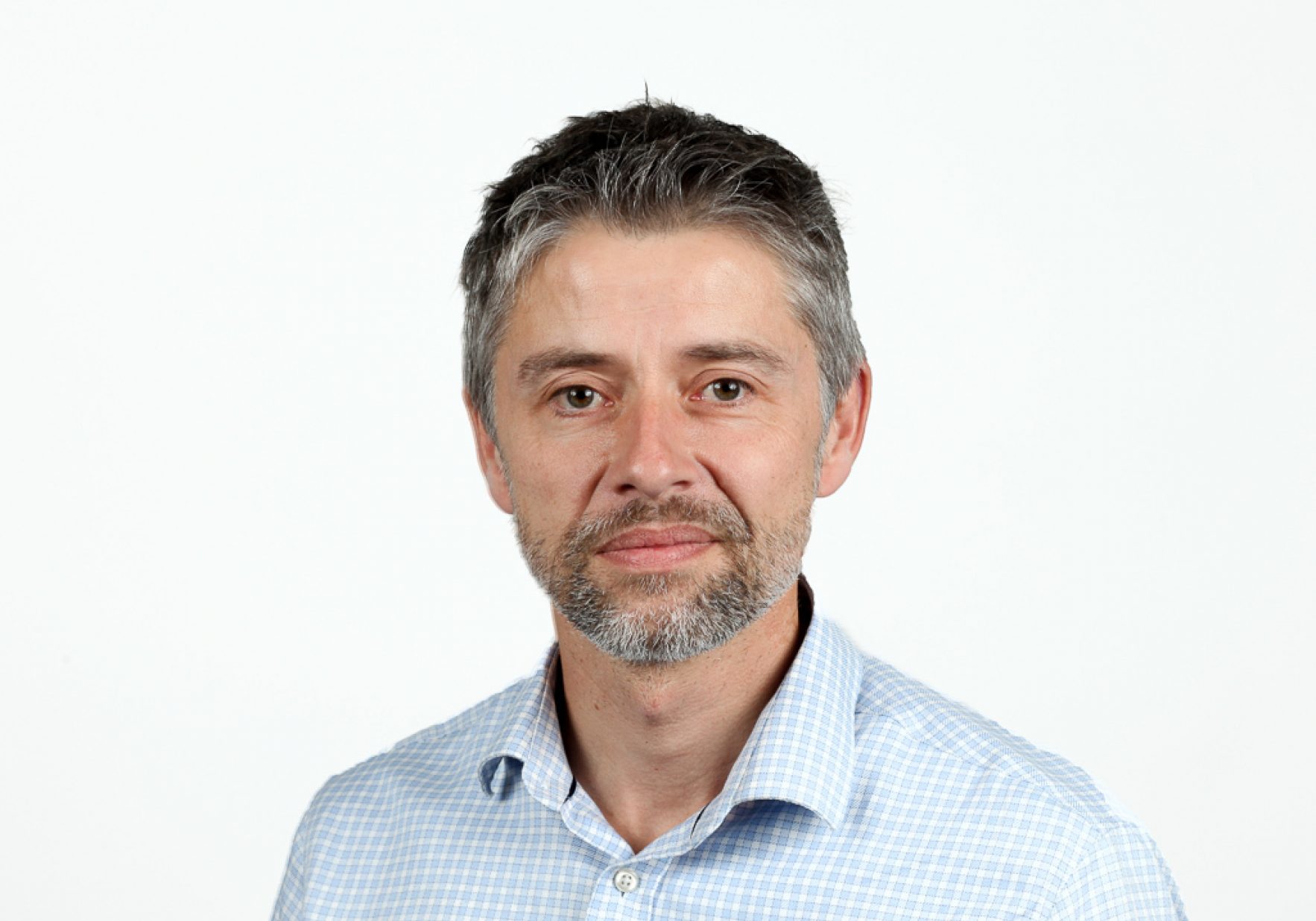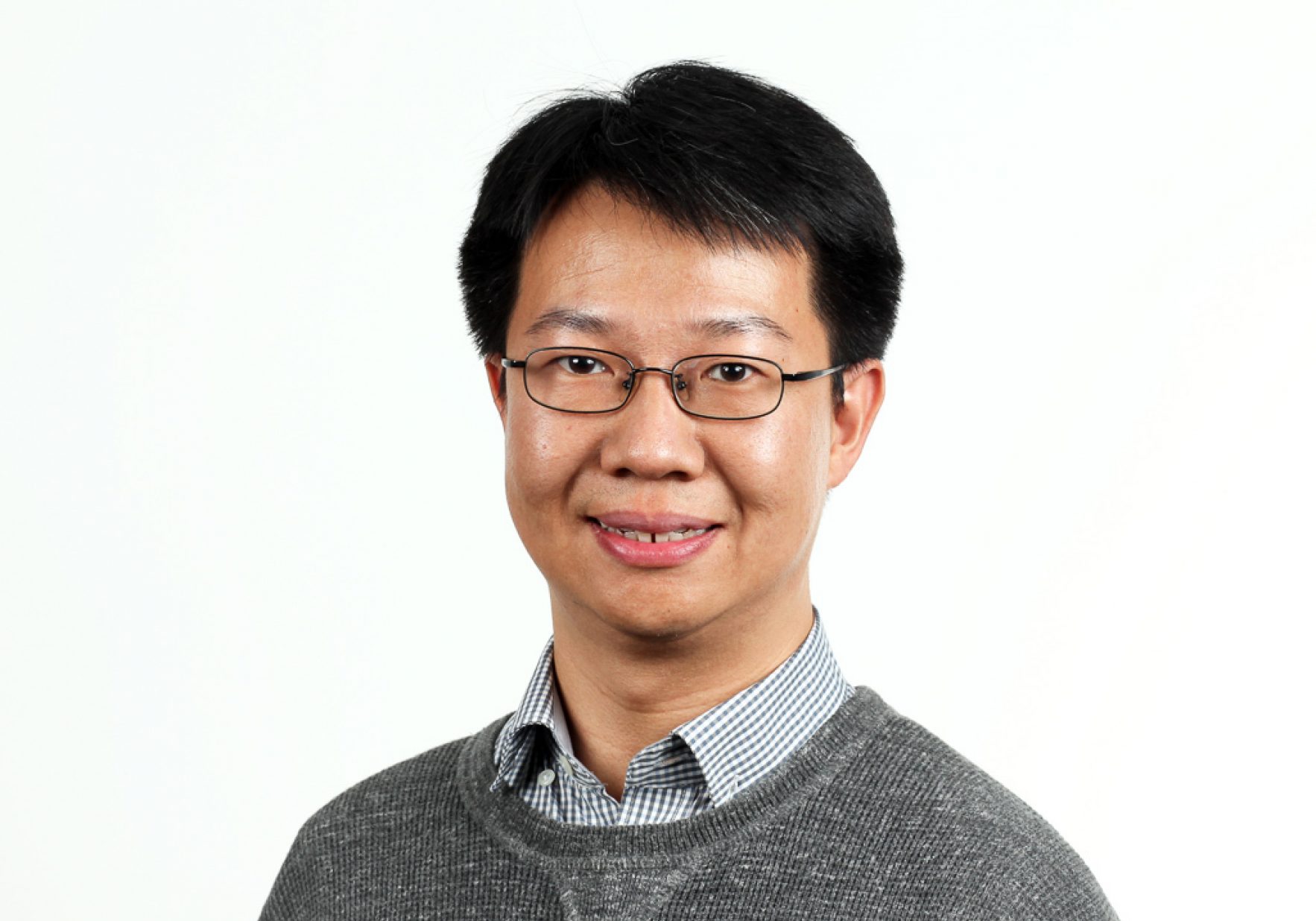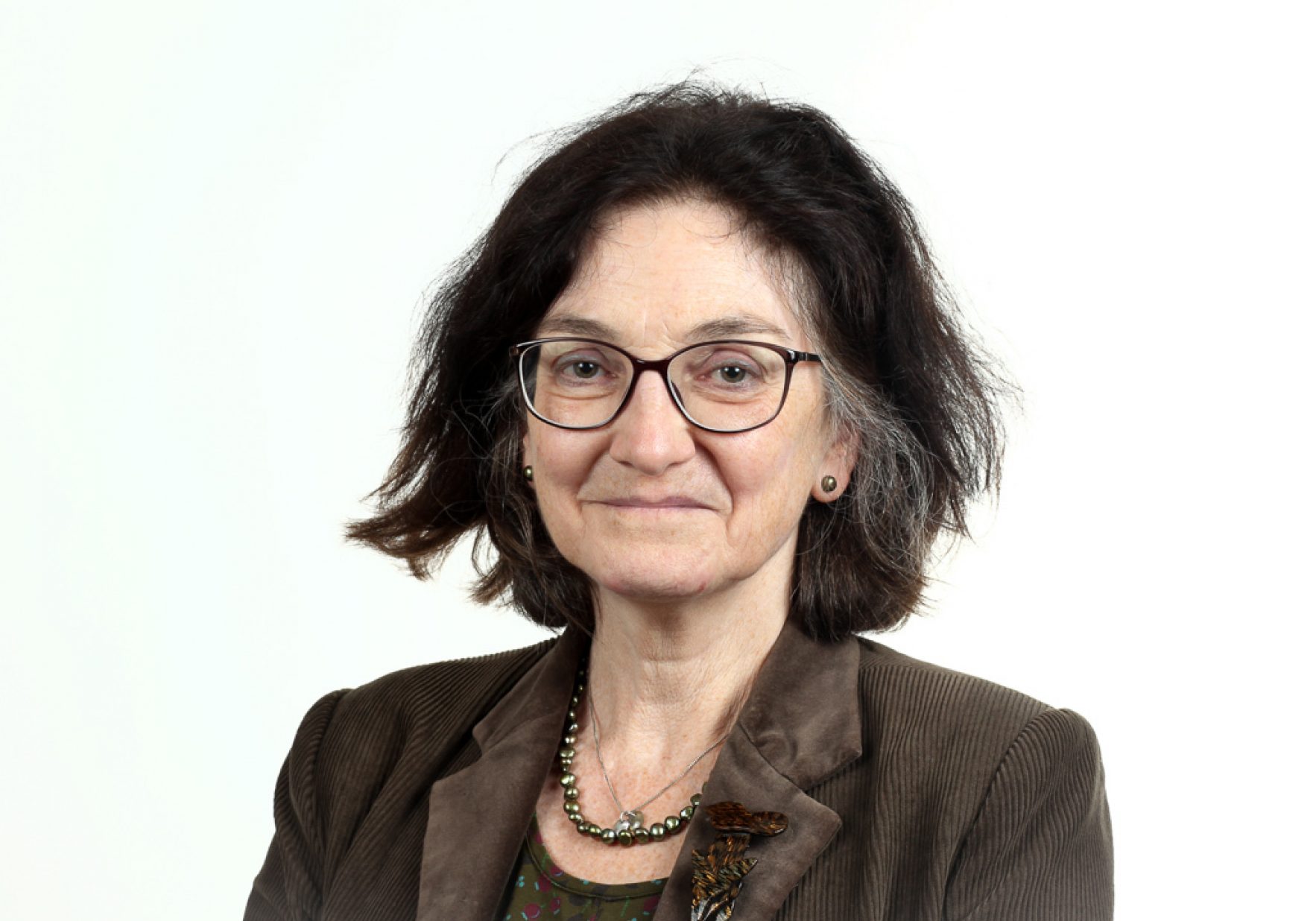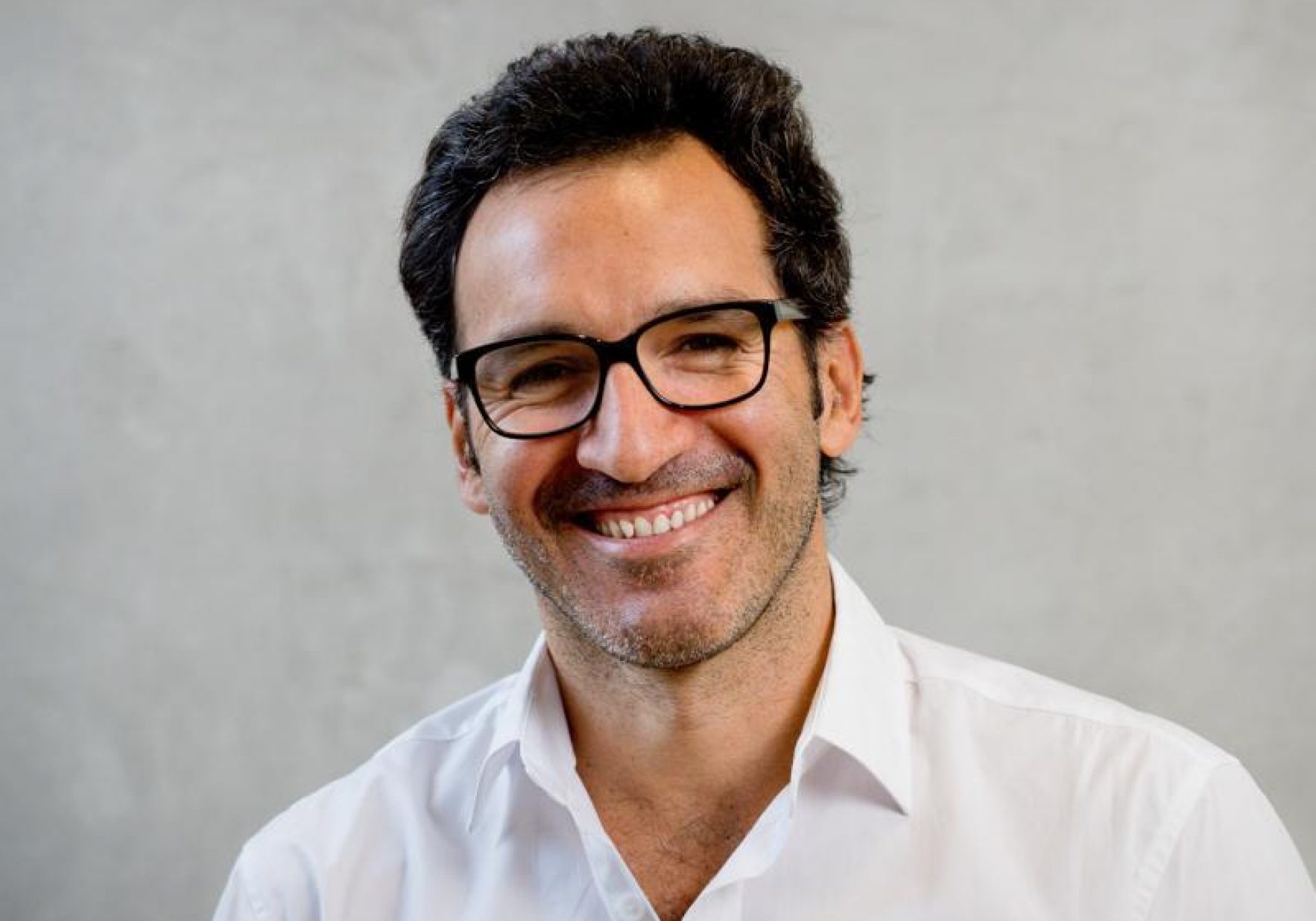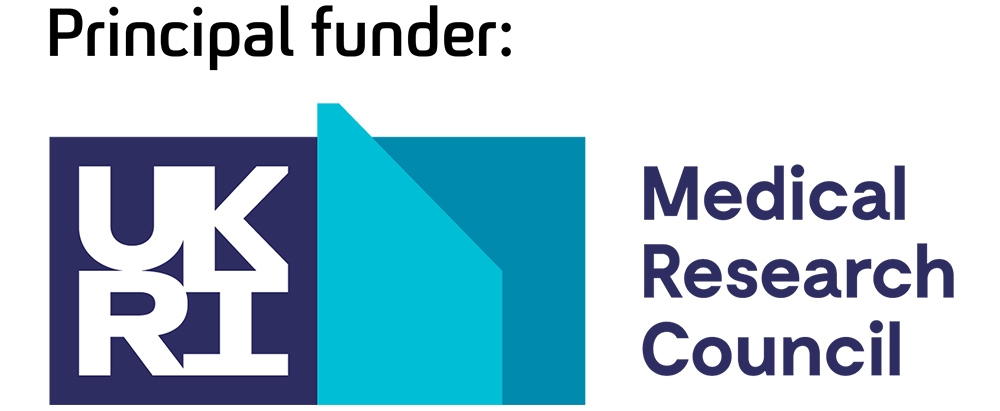"The UK DRI at Edinburgh focuses on understanding how all the different cell types in our brains work together to keep the brain healthy, how this goes wrong in dementia, and how this process can be slowed or stopped to alter disease progression." Prof Giles Hardingham
UK DRI Centre Director
1. At a glance
Understanding the inner workings of the brain – and how things can go wrong
UK DRI researchers in Edinburgh are aiming to piece together how all the different brain cells, systems and processes work together to keep our brains healthy over many decades. Unravelling how these finely-tuned interactions are disturbed even before a person has any specific signs or symptoms of dementia – and how changes are involved in driving disease progression – will open new avenues for the development of novel therapies.
Our brain is an incredibly complex organ, made up of around 100 billion neurons and an equal number of other cells that provide vital support and protection. It is aided by an intricate network of blood vessels that supply nutrients and oxygen, working together in perfect harmony. It is essential to understand the function of each component, and the complex relationships between them, to understand how our most complicated organ works – and what happens when things go wrong in conditions such as dementia.
By understanding the inner workings of our brains, the researchers hope to identify disturbances that can lead to neurodegenerative diseases. A main aim of the research programmes is to find new targets for the development of treatments - meaning that more people can live longer, healthier lives.
Read more about the official opening of the UK DRI at Edinburgh
Take a virtual laboratory tour of the UK DRI at Edinburgh
2. Scientific Goals
The mission of the UK DRI at Edinburgh is to elucidate the interactions within and between the brain vasculature, neurons, macroglia and microglia which control the trajectory of neurodegenerative disorders leading to dementia and exploit this knowledge for therapeutic benefit.
Synapse and circuit dysfunction leading to dementia are heavily influenced by the multicellular environment of the neurogliovascular unit (NGVU). Genetic, epidemiological and post-mortem studies point to inflammatory, vascular and metabolic (mitochondria, lipid, glucose-RNA- and APP- metabolism) factors in pathogenesis. This indicates central roles for NGVU components in disease progression, given their function in maintaining inflammatory, bioenergetic and metabolic balance in the brain.
All NGVU cell types are altered by neurodegenerative disease and its primary risk factor, age. However, the interplay between NGVU components, and their impact on disease progression, is poorly understood, yet critical for progression to therapies. To understand this, it is also important to probe NGVU interactions underlying homeostasis in the healthy brain, which typically maintains human cognitive function for several decades. Identifying the regulators of adaptive and protective homeostatic processes is likely to reveal a largely untapped resource of therapeutic targets with cross-disease applicability.
Achieving this aim will require a holistic view of the NGVU in disease progression, delineating key cell-(non)autonomous influences of disease-causing factors, requiring interdisciplinary, interlinked projects fuelled by complementary expertise.
The centre will develop four inter-related themes through synergistic programmes, exploring how NGVU interactions maintain homeostasis during health, adapt and change during the prodrome, and drive pathology during disease. Scientists will use diverse approaches from animal and human stem cell models through to human imaging and experimental medicine.
The specific themes are:
1. Macroglia in neuroprotection and neurotoxicity
2. Cerebrovascular & metabolic dysfunction
3. Inflammation and immunomodulation
4. Synapses and neurons as effectors of a dysfunctional NGVU
3. Centre Staff
Research, technical and administrative staff that work across lab groups to drive activities at the Centre:
- Dr Beverly Roberts (Centre Manager)
- Alexa Jury (Operations & Facilities Manager)
- Morag Laidlaw (Head of Research Management)
- Dr Deepali Vasoya (Bioinformatician)
- Dr Owen Dando (Lead Bioinformatician)
- Dr Juraj Koudelka (Research Fellow/Imaging Lead)
- Dr Xin He (Bioinformatician)
- Lynsey Dunsmore (Colony Manager)
- Dr Alison Harris (Research Assistant)
- Mehreen Mohammad (Research Assistant)
- Abbey Lough (Lab Technician
4. Collaborations
Within UK DRI
- Prof Paul Matthews, UK DRI at Imperial
- Dr Nir Grossman, UK DRI at Imperial
- Prof John Hardy, UK DRI at UCL
- Prof Adrian Isaacs, UK DRI at UCL
- Prof Sarah Tabrizi, UK DRI at UCL
UK DRI Co-investigator
- Prof Anna Williams, University of Edinburgh
Beyond UK DRI
- MRC Centre for Inflammation Research, Centre for Cardiovascular Sciences and BHF Centre of Research Excellence.
- The Dundee-Edinburgh Parkinson’s Research Initiative which spans both clinical and discovery research with the aim of improving links between these disciplines.
5. Topics
Vasculature, inflammation, macroglia, neurons, microglia, synapse
6. Techniques
Mass cytometry, RNA-seq, proteomics, chimeric transplants, Chemogenetics (DREADDs), TRAP-seq, RNA-seq, RNAscope, Forward-Phase Antibody Microarrays, multiplex custom ELISA plates, mass spectrometry, proteomics, primary microglia cell culture (rodent and porcine), multi-species in vitro multi-cell platforms, human iPSC cell culture, MRI, flow cytometry, in vivo multiphoton imaging, MRI, electron microscopy
7. Scientific Advisory Board
- Professor Richard Morris (Chair), University of Edinburgh
- Professor Dwight Bergles, John Hopkins University
- Professor Beth Stevens, Harvard University
- Professor Maiken Nedergaard, University of Copenhagen
8. Vacancies
The UK DRI at Edinburgh is currently looking to recruit excellent researchers to take up UK DRI Group Leaders positions at career-track level.
Find out more in the Centre's career brochure below.
Visit our Join Us page to see opportunities available at this centre.


